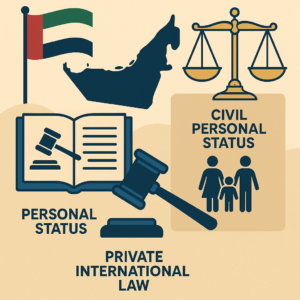The Personal Status Regimes in the UAE — What’s New and What Are the Implications for Private International Law? A Brief Critical Appraisal
 Prologue
Prologue
On 15 April 2025, the new federal UAE law on personal status (Federal Decree Law No 41 of 14 October 2024) officially entered into force ( “2024 PSL”). This law fully replaces the 2005 Federal Act on Personal Status (Federal Law No. 28 of 19 November 2005 as subsequently amended) (“2005 PSL”). The new law marks the latest step in the UAE remarkable wave of legal reforms, particularly regarding personal status matters. It follows a series of significant developments at both the federal and local levels. At the federal level, this includes the adoption of the law on Civil Personal Status (Federal Decree-Law No. 41 of 3 October 2022 on Civil Personal Status) (“2022 CPSL”) and its executive regulation. At the local level, specific legislations were adopted in the Emirate of Abu Dhabi, most notably the 2021 Law on Civil Marriages and its Effects (as subsequently amended) (“2021 ADCML”), and its Procedural Regulation. These legislative efforts collectively address what is commonly referred to as “civil family law” (for further details see previous posts on this blog here, here, here, and here). Together with the new 2024 PSL, these instruments will collectively be referred to as the “Family Law Regulations” (see Table below). Read more
